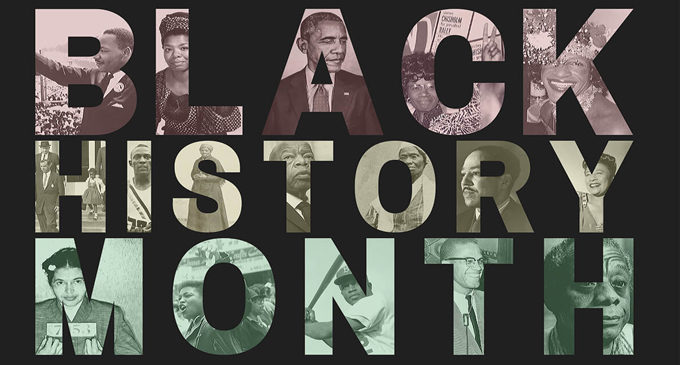Commentary: Celebrating Black History Month during COVID-19

By Dr. James B. Ewers Jr.
I have a t-shirt that has written on it “Black History Month Every Month.” I wear it because I believe it. Black History Month in February was once Black History Week.
It remained that way until 1970 when it was first celebrated at Kent State University in Ohio. In 1976, President Gerald Ford recognized Black History Month across America.
When I was going to elementary school in Winston-Salem, we had Black History Week. Even at a young age, I wondered how all Black history could be packed into a week and then literally disappear until the following February.
Growing up, we had Black history in our community every day. We had a Black bus company, a Black cab company and a Black hospital. Our community had doctors, lawyers, teachers, skilled workers and businessmen and women who looked like me. I am Black.
As important was the fact that my parents gave me a steady diet about the accomplishments of Black people. So arguably, I was in the middle of Black greatness. As children, we did not have to look for role models. They were in our homes.
All along back in the day and today, we stand on the broad and unbowed shoulders of our forefathers and mothers. To keep it real, there could be no Lloyd J. Austin III, the 28th Secretary of Defense, without there first being a Daniel “Chappie” James Jr., who became the first African American to reach the rank of four star general in the United States Armed Forces in 1975.
Our celebrations of Black History Month will be different this year. We have a monster disease out there called COVID-19 and it does not distinguish February from any other month.
While our celebrations will be virtual, there are other ways to celebrate Black History Month.
One of the basic ways is to read a book authored by a Black writer. I am sure when you google names like Shirley Chisholm, Whitney Young and Dr. Martin Luther King Jr., that you will be inspired by their writings.
Let us not forget Andrew Young, Flonzie Brown Wright, John Lewis and most recently, Amanda Gorman. Another author that you might want to read is Dr. Darius Prier. The title of his book is “Culturally Relevant Teaching: Hip Hop Pedagogy In Urban Schools.” The list of African American authors is significant, so take advantage of it.
We are in the age of Zoom, so why not call a few friends and have a Black History discussion. It will be fun and different.
If you are at or near the twilight of your life, you may want to have some reflections about your life and how you made it through.
Just what we have been called is a history lesson in and of itself. It will require you to do some research. Deep in our slavery days, we were called by the n-word. I do not use that word at all, and I am offended by those who do.
As we celebrate, let us make a commitment to treat each other better. Dignity and respect ought to be our calling cards. We cannot expect others to respect us if we do not respect ourselves. I pause here now to ask you to remember The Staple Singers, who had the hit, “Respect Yourself.”
Why not have some daily moments in Black History? For example, when you think about blood plasma, think about Dr. Charles Drew. When you think about poetry, think about Gwendolyn Brooks and Maya Angelou. When you stop at a traffic light, think about Garrett Morgan, who invented it.
Black History is not a month, it is a way of life. We are surrounded by it every day, so let us celebrate it every day.
James B. Ewers Jr., Ed.D.,. is a former tennis champion at Atkins High School in Winston-Salem and played college tennis at Johnson C. Smith University, where he was all-conference for four years. He is a retired college administrator. He can be reached at overtimefergie.2020@yahoo.com.









